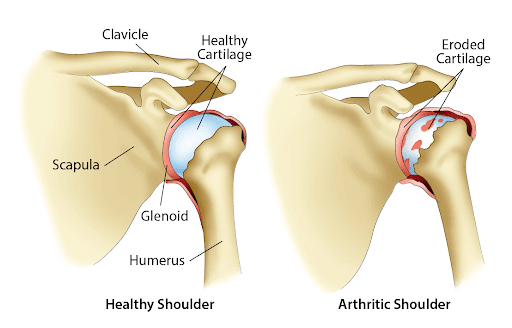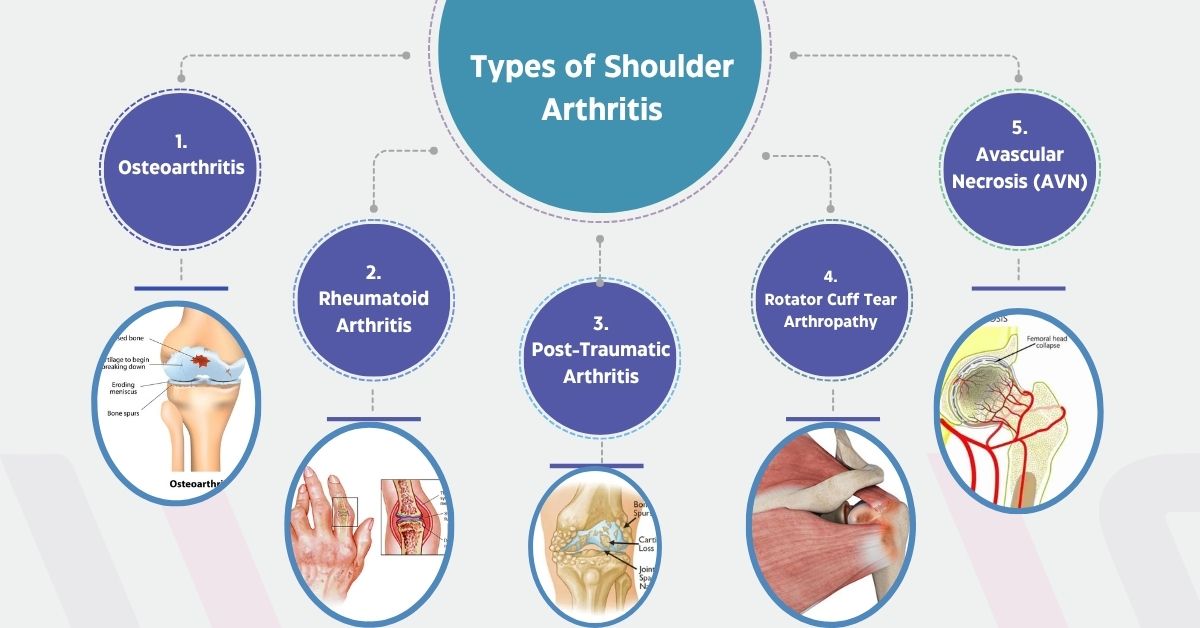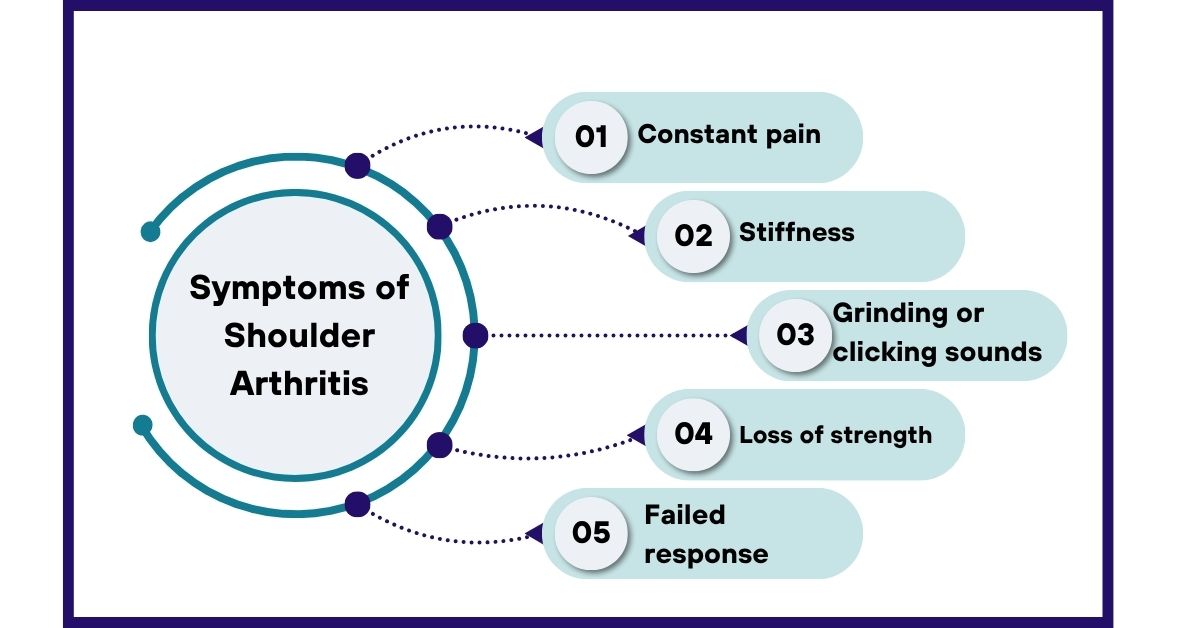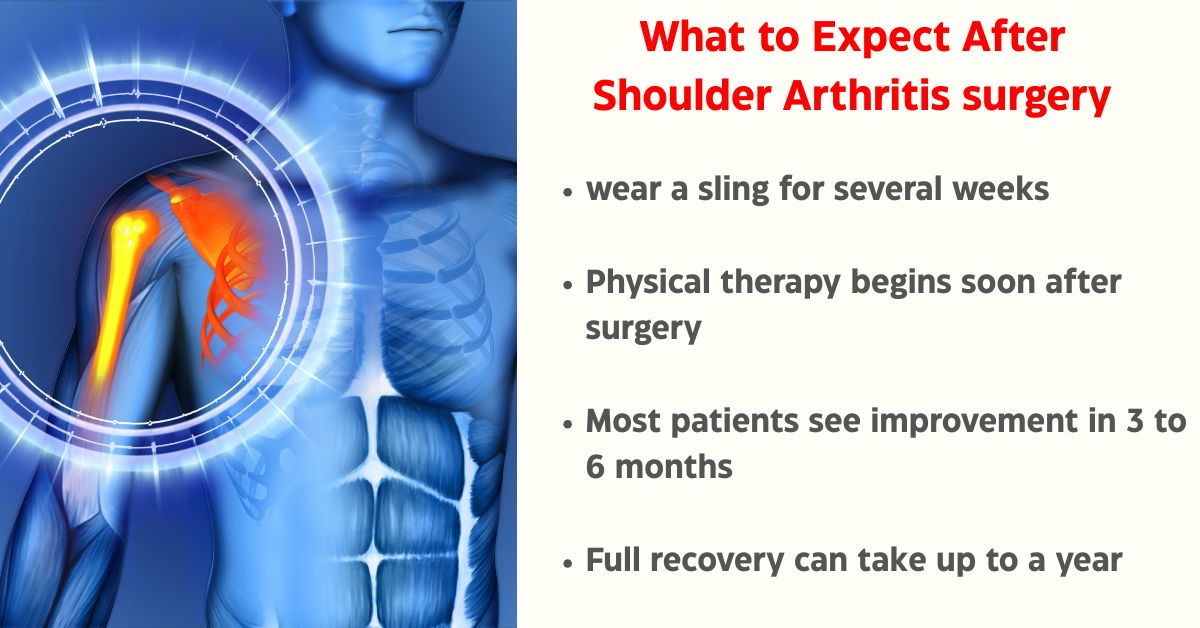Shoulder Arthritis Surgery
Shoulder arthritis can make daily life difficult. Simple tasks like combing your hair or reaching a shelf may become painful. When medications and physical therapy stop working, surgery might be your next step.
This blog explains when shoulder arthritis surgery is needed, what symptoms to watch for, and what treatment options are available. You’ll also learn about recovery, risks, and who to consult for expert care.
What Is Shoulder Arthritis?

Shoulder arthritis happens when the cartilage in your shoulder joint wears down. Cartilage is the smooth layer that helps bones glide against each other. Without it, bones rub together and cause pain, stiffness, and swelling.
There are two main joints in the shoulder:
- Glenohumeral joint: where the upper arm bone meets the shoulder blade.
- Acromioclavicular (AC) joint: where the collarbone meets the tip of the shoulder blade.
Arthritis can affect one or both of these joints.
Types of Shoulder Arthritis
Several types of arthritis can affect the shoulder:

Osteoarthritis
This is age-related wear and tear. It develops slowly and usually affects people over 50.
Rheumatoid Arthritis
An autoimmune disease that causes joint inflammation. It can affect both shoulders and damage the lining of the joint.
Post-Traumatic Arthritis
Caused by a past injury, such as a fracture or dislocation.
Rotator Cuff Tear Arthropathy
Long-standing rotator cuff tears can lead to arthritis over time.
Avascular Necrosis (AVN)
Reduced blood flow to the bone causes joint damage. It often affects younger adults.
Understanding the type of arthritis helps guide the best treatment plan.
Symptoms That May Require Surgery
Not every case of shoulder arthritis needs surgery. But some symptoms may indicate it’s time to consider it:

- Constant pain that disrupts sleep or rest.
- Stiffness that limits your ability to lift, reach, or move your arm.
- Grinding or clicking sounds during movement.
- Loss of strength in the shoulder.
- Failed response to medications, injections, or physiotherapy.
If your shoulder keeps you from doing daily tasks, surgery might offer relief.
When Is Surgery Recommended?
Surgery is usually recommended when:
- Non-surgical treatments fail after several months.
- X-rays or scans show advanced joint damage.
- You’re otherwise healthy and able to handle recovery.
- You want to improve quality of life and independence.
The goal of surgery is to reduce pain and restore motion.
Surgical Options for Shoulder Arthritis
There are different surgical procedures depending on your condition and needs.

Arthroscopy
A minimally invasive option for early arthritis. Surgeons clean out loose fragments and smooth the cartilage. Recovery is usually faster.
Shoulder Hemiarthroplasty
Only the head of the upper arm bone is replaced. This is used when the glenoid (socket) is still healthy.
Total Shoulder Replacement (Arthroplasty)
Both the ball and socket are replaced. It offers excellent pain relief and function in most cases.
Reverse Shoulder Replacement
Used when arthritis is combined with a large rotator cuff tear. The positions of the ball and socket are switched to rely on the deltoid muscle.
Your doctor will decide the best option based on age, activity level, joint condition, and bone quality.
What to Expect After Surgery

Recovery from shoulder surgery takes time and effort.
- You may wear a sling for several weeks.
- Physical therapy begins soon after surgery to restore movement.
- Most patients see improvement in 3 to 6 months.
- Full recovery can take up to a year, depending on the type of surgery.
The success rate is high when post-op instructions are followed carefully.
Risks and Complications
As with any surgery, there are some risks involved:
- Infection
- Nerve injury
- Joint stiffness
- Loosening of the implant
- Continued pain or weakness
Choosing a skilled and experienced surgeon can reduce these risks.
Doctor Introduction
Dr. Chintan Vinod Desai is a consulting Shoulder Surgeon practicing in Tardeo, Parel, Dadar, Mumbai Central, Lalbaug, Santacruz, and Mulund, Mumbai. He is skilled in advanced techniques for managing shoulder conditions. His areas of expertise include Shoulder Arthritis, Rotator Cuff Tear, Frozen Shoulder, Instability, Impingement, and Calcific Tendonitis. Patients trust Dr. Desai for his personalized care and clear guidance on when surgical treatment is truly needed.
FAQs
1. Can shoulder arthritis be treated without surgery?
Yes. Medications, physiotherapy, steroid injections, and activity modification can relieve symptoms. Surgery is only considered when these options fail.
2. How do I know if my arthritis is severe enough for surgery?
If pain interferes with sleep, daily activities, or work, and conservative treatments have not helped, it’s time to consult a shoulder specialist.
3. Will I regain full motion after shoulder replacement?
Most patients regain a good range of motion and function. While it may not be 100%, significant improvement is typical with proper rehab.
4. How long does a shoulder replacement last?
Modern shoulder implants can last 10–20 years or more, depending on your age, activity level, and post-op care.
5. Is shoulder arthritis surgery safe for older adults?
Yes, many people in their 60s and 70s undergo successful surgery. Your overall health is more important than your age.
Conclusion
Shoulder arthritis can slowly limit your mobility and independence. When conservative treatments no longer offer relief, surgery may be the right path forward.
With advanced techniques and expert care from specialists like Dr. Chintan Vinod Desai, shoulder surgery has helped many regain comfort and freedom in their daily lives. If shoulder pain is holding you back, don’t ignore it—explore your treatment options and take the first step toward a pain-free life.


